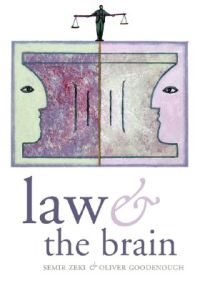Parenting and the end of ethics
28 november 2010 | In Meta-ethics Meta-philosophy parenting Psychology Self-indulgence Uncategorized | Comments?So ethics month(s) just ended. On Thursday, I sent around 50 critically acclaimed essays on applied, normative and meta-ethics back to their authors. Leaving me pondering the proposition that there is now a group of people, the sort of university educated people that invariably turn out ruling the world, the media, the arts and so on, that I taught ethics. For future readers of the web-archives: I’m sorry. Alternatively: You’re welcome.
Normatively, they are all over the place. Utilitarianism is probably the strongest contender, but not by a majority vote. Meta-ethically the interest has a clear tendency towards epistemology, and a weaker tendency towards coherentism. In general, they are very much able to relate their moral judgements in particular cases not only to the normative theory they favor, but also to other theories they know are held by other people. Let’s go out on a limb and call it a good thing.
Those propositions are now passed on to you, as I turn my attention to other things, assuming other perspectives. I’m on parental leave. My main objective for the next few months is play. There will be drumming, there will be crawling and toddling, there will be incomprehensible talk and the provision of feedback. There will, in all likelihood, be a sharp decline in vocabulary, grammar and level of abstraction in the blog posts to come.
The missing philosophy
21 oktober 2010 | In Meta-philosophy Self-indulgence Uncategorized | Comments?
How do you get to do philosophy? As a profession, I mean. How do you go from being genuinely interested in the stuff to doing it as a full time job? For an initiated look at the profession and some perfectly juicy gossip to boot, you would do well to turn to Leiter reports. If you happen to be female, or actually: no matter what you happen to be, you might want to look into the excellent but sometimes somewhat discouraging Being a woman in Philosophy. Talking to members of staff at your local, or any, department for philosophy is generally advisable. This being said, my academic advisor, when I asked about the prospect for a career in philosophy, said that it’s perfectly possible. If you’re independently wealthy.
Arriving at university very much a Man with Ideas, the question was mostly a practical one. How could I get to spend my days working on those ideas, ideally while getting paid and duly appreciated?
I find, and others have shared this experience, that it goes something like this. You read and you listen and you talk a lot. You are quite impressed, but not discouraged by the amount of excellent thinking that has already taken place. You’re not discouraged, either, by the fact that the history of philosophy has an unfair advantage. Kant, the lucky s.o.b. had the good fortune of being born into a world where Kantian ideas had not already been developed and twisted and turned ever which way. You find something that’s particularly interesting. Your teacher, if you got one, has probably given you an assortment of topics to choose from, and you look around for stuff that treats the topic you find yourself drawn to.
And then it happens. You find that something is missing. Despite initial appearances, there are philosophical theories that have not been developed yet. This is the opening. If you are really lucky, the position is not only unoccupied, but also quite plausible. And then you go about developing that missing theory, defending it’s merits over other, neighboring theories. More likely than not, you’re not going to convince anyone at this stage, but you may earn their respect, and the possibility to spend a couple of years making the best possible case for your theory.
Along the line, as you’re vacuuming of the field progresses, it is likely that you will find something that is awkwardly close to what you wanted to say to begin with. But then you’re already so von kopf bis fuss entrenched in it that you go on to develop an enhanced variation of it any way.
For me, the missing theory bit happened when I was dealing with preferentialism. The ongoing debate was between objective and subjective satisfaction versions of the theory:
Either it is good that what you want to be the case is the case no matter whether you know it or not, or the only thing that matters is that you think that your wish is satisfied: what is good is the conjunction of the desire and the belief that it is satisfied. Whereas the latter version struck me as more plausible, the mere conjunction of desire and belief did not seem to me to be close enough. It’s not enough that I have a desire that P while having the belief that P is the case. I may have those things, and fail to make the connection, so to speak. Neither would it be sufficient that I have the desire that P and the belief that this desire is satisfied. No, I thought there should be a more concrete relation between the two. Beliefs and desires being mental states, they had to actually meet up and a new mental state: the desire being satisfied as a result of the ingoing components meeting up was the real value-bearer here.
The ultimate result of that train of thought became part 1 of the dissertation, the theory of pleasure.
Word, Smith
10 september 2010 | In Uncategorized | Comments?Okay, so this is a very brief ”hullo” and a minor sweep with that dusting thingy so that this here blogspace will be presentable and suitable for more thoroughly thought through things later on.
While doing something completely else, I started leafing through Adam Smiths Theory of the moral sentiments and noticed that in that wonderful and almost lost art of describing your chapters in the index (surely there is a name for that?), Smith was a wonderful and somewhat quirky sort of master. Here are two of my favorites:
- Chapter III Of the corruption of our moral sentiments, which is occasioned by this disposition to admire the rich and the great and to despise or neglect persons of poor or mean condition.
- Chapter 1 That though our sympathy with sorrow is generally a more lively sensation than our sympathy with joy, it commonly falls much more short of the violence of what is naturally felt by the person principally concerned.
Patience, pets
9 juni 2010 | In Uncategorized | Comments?While waiting for the next substantial blogpost to appear, here is a picture of a fairly huge window at the Royal Library. With a little luck, this afternoon will bring pictures from the academic celebrity spotting circuit. Sightings of Damasio, Zeki and Rizzolatti have been reported.
My favorite building
22 maj 2010 | In Uncategorized | Comments?no 5, Washington Place. The Philosophy Department
A little less information, a little more reaction, please
12 april 2010 | In Uncategorized | Comments?”A wealth of information creates a poverty of attention”. Herbert Simon.
Too much information can be detrimental to decisions. In his recent, excellent book ”How we decide” Jonah Lehrer (here’s a piece of decision worsening information for you: he’s charming and good looking as well) retells the story of how MRI was introduced as a diagnostic tool in medicine. MRI gives very detailed information about the interior state of the body. Lehrer tells us that, it had a very interesting effect on the treatment of back pains. This ailment, whose cause was previously elusive and mainly treated by resting, become possible pin down with the help of MRI scans, and to treat more effectively, or so one assumed.
One found things that seemed to cause the pain: Spinal disc abnormalities. These reasonably seemed to cause inflammation of the local nerves. This, however, was misleading: As it turn out, disc abnormalities does not normally cause back pain, and surgery recommended on the basis of mri scans is often unnecessary – and yet doctors seems to have difficulties disregarding the scan, which sure looks like the best diagnostic tool. ”Seeing everything” Lehrer writes ”made it harder to know what they should be looking at”.
Occasionally, when we have a lot of information we tend to think that the problem must be somewhere in that information, and that can make it harder to think about other solutions. Or, as Lehrer point outs in the phenomena of ”choking” among artist and athletes, it can make it harder to stop thinking and perform an activity that is best done automatically, or ”by ear”.
It is perhaps obvious that information – data – alone is useless: we need to know what is relevant, how information should be translated, interpreted, into inferences and decisions. But the point here is more upsetting: more information might be worse than useless – it can make you think that the thing you know more about is more relevant than it is. Come to think of it, this seems to be the defining characteristic of an academic.
Nominative determinism
26 februari 2010 | In Uncategorized | Comments?”Hey!” someone with the authority to command my attention wrote to me today ”You should take a look at this book” and then there was a link to ”Law and the Brain” by authors Semir Zeki and – wait for it – Oliver Goodenough. I congratulate you, Sir, on a fabulous name. Those, ”good enough”, are also the two last words of my dissertation. As if the title and the splendid collaborator and the recommendation weren’t enough the get me to read the book, some mechanism of nominative determinism seems to drive me towards it as well.

Science Fiction, when the science is not fictitious
20 januari 2010 | In Uncategorized | Comments?Around 50 pages before the end of a Richard Powers novel, I pause and hesitate and fret a bit. Once again, I’m heading towards that unenviable state of having nothing by Richard Powers left to read. ”Generosity” is highly recognisable, veering towards the parodically Powerisian (”Powerful”? The New Yorker ought to have a field day setting titles to reviews). On the one hand, there is the Science (this time around: the science of affective enhancement), on the other: the people doing the science, or being affected by the science (Geneticist, Science-reporter,Psychologist, Writing-Class Teacher, Unaccountably Happy Algerian girl). Powers is that rare thing, someone who writes excellently stuff on both topics. The science is a bit pushed aside this time, made redundant by common knowledge perhaps, and there might be something a bit off about some of the characters (the theme of his former book, the Echo Makers, btw), but in the end, the objection just boils down to the fact that it is too short.
Radio Days
10 januari 2010 | In Uncategorized | Comments?Tonights episode of the chockingly popular radio show ”Filosofiska Rummet” (The Philosophical Room) features Yours Truly, the philosopher, translator and allround splendid person Jeanette Emt and the multitalented David Polfeldt, managing director at Ubisoft Massive and author of children’s books. We will talk about the value of pleasure. I will argue that pleasure is very good indeed, and the other two will suggest that maybe it’s not all that it’s cracked up to be.
And, as I am doing my best to outstay my welcome in the media (really, this romance must come to an end sometime), I’ll be featured in next weeks episode as well, discussing the use of empirical methods in moral philosophy. In short: For the next week or so, I’ll be the spoon in your coffee, the knife that butters your bread.

(Foto: Thomas Lunderquist, Lokatt media)
The media is the message, and the media is gingerbread.
8 december 2009 | In Uncategorized | Comments?This is the motive from the cover of (for?) my dissertation, made from gingerbread. It is totally edible, but, according to certain critics, a bit hard to digest.


